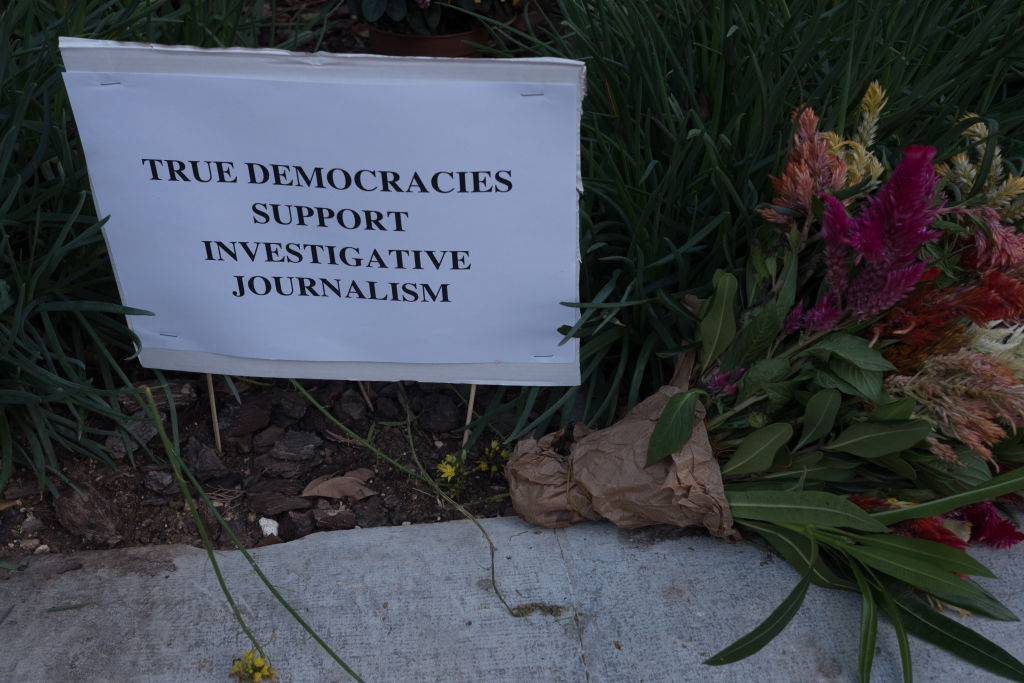“Men are essentially what they hide: a miserable little pile of secrets”, wrote the much married and mistressed André Malraux. He was a man whose private life was largely lived in public in a kinder era — but much used to be forgiven in France (and envied elsewhere) of someone nominated 32 times for the Nobel Prize in Literature. It is no longer in fashion to allow personal secrets to remain just that. Circulated over social media and the Slack channels of the more with-it corporations, these secrets enable a rising generation of sour young little commissars to demand the modern version of excommunication: a public shaming leading to the so-called culprits losing their jobs (always), families (often), any hope of acceptance among most of their peers until they have sufficiently abased themselves in degrading public apologies. This is all done in the name of morality in its most recent avatars.
There’s nothing more prurient than the current war on prurience. Take the British newsreader Huw Edwards, the man the BBC rightly picked to anchor, with grace and historic depth, the coverage of Queen Elizabeth II’s funeral ceremonies, then the Coronation of Charles III. He was recently named as the “television star” who allegedly paid a 17-year-old for explicit picture of themselves three years ago. The minute his name was fed to the TikTok and Twitter wolves, various ex-colleagues and acquaintances joined in, their glee barely hidden behind a sanctimonious veneer. He had sent “inappropriate” emails! Some were even “flirtatious”!
We know this because one of Edwards’s BBC colleagues (and, knowing the television world, I think we can safely add “competitors”), Victoria Derbyshire, started her own “investigation” among staffers. “This person told me they had never met [him, but] they had received late night messages on social media including kisses from Huw Edwards, which they said they believed was an abuse of power,” Derbyshire later told the Daily Mail. (She was far from alone among BBC journalists in sniffing around for the goods on such a potentially juicy target). Meanwhile, the UK Metropolitan police, asked by the BBC to look into the matter, have said that they had found no evidence of criminality, and were closing the case. (Compare this with the actions of the American film producer Harvey Weinstein, sentenced to a total of 39 years in prison for serial rapes.)
Why are we allowing this slander free-for-all, enabled by modern technology and frenzy-fed by the Western world’s millennial reincarnations of Mao’s Red Guards, to go on? Yes, there were sex scandals in the past, but at least the stakes were higher. In the 60s it was frolics at a historic stately home, with one Russian attaché, two call girls, a osteopath to the stars, and the best line to demolish a denial (“he would, wouldn’t he?”): in the 70s it became one great white hope of the Liberal party, one rent boy, one Great Dane, and gunshots on a moor.
In France, you needed the decomposed remains of a Serbian a bodyguard to Alain Delon, (baseless) whispers about the wife of the PM recently fired by General de Gaulle, a brace of Corsican gangsters, and a former Madame Claude call girl, to get the country vaguely concerned. Another President of the Republic crashed into a milk float a Ferrari he borrowed from Brigitte Bardot’s, Catherine Deneuve’s AND Jane Fonda’s lover, with yet another actress on the passenger seat? All ho-hum to us. When Nicolas Sarkozy, in his early job as Mayor of Neuilly, West Paris, officiated at one of his TV star constituents’ five marriages, only to start an affair with that particular blushing bride (he married her: Sarko is uxorious), this, if anything, rather helped than hampered his political career.
But even France has turned: a torrid sex scandal in New York cost Dominique Strauss-Kahn the presidency in 2011, and only three years ago, one of Emmanuel Macron’s ministers lost both his shot as Paris Mayor, and his career as a Cabinet minister for having sent pictures of his private parts in good working order to a mistress he shared with a Russian performance artist. (In Germany, you have to go back a century to find a good sex scandal: the national prurience concentrates on misuse of official perks, or plagiarism in that necessary PhD thesis.)
Nowadays, outrage will become public on the slightest pretext, for a combination of revenge and entertainment. Take the hapless Major Duncan Wiggins of the Queen’s Dragoon Guards, 34, now “suspended pending disciplinary action” after being accused of having sex with two women guests at a ball at his Barracks after his wife had gone to bed”. To anyone who recalls Prince Harry’s last ever good line (“It was too much Army and not enough Prince”, when interviewed about that strip billiards party in Las Vegas), that was caddish, that is, pretty much expected. The great Jilly Cooper made a career of describing such entertaining bounders in her Rutshire series of hilarious (and perceptive) bonkbusters: she sold 11 million in Britain alone (the latest of her many avowed fans is PM Rishi Sunak), and has been translated into Dutch, French, Italian, Spanish, German, Greek, Japanese, Norwegian, Swedish, Polish, Russian, Finnish, Hungarian and Lithuanian. (Cooper is also published in the United States, where I suspect her books have escaped cancellation only because they are hidden behind the complete works of Greta Thunberg and stealthily read by the parents of the cancellers.)
We cannot keep being complicit with the new censors, so eager to expose anyone’s pile of miserable little secrets for fun (and profitable career moves). In their search for ever stringent purity tests, they will come for every single one of us: for our jokes, our mistakes, our fun, our winks and nudges. It’s time to join La Résistance. I personally have just ordered Jilly Cooper’s latest Rutshire bonkbuster, Tackle, just out, with every hope that like its ten predecessors, it will take me into a warmer and funnier world.






What EU technocrats could learn from the Battle of the Golden Spurs